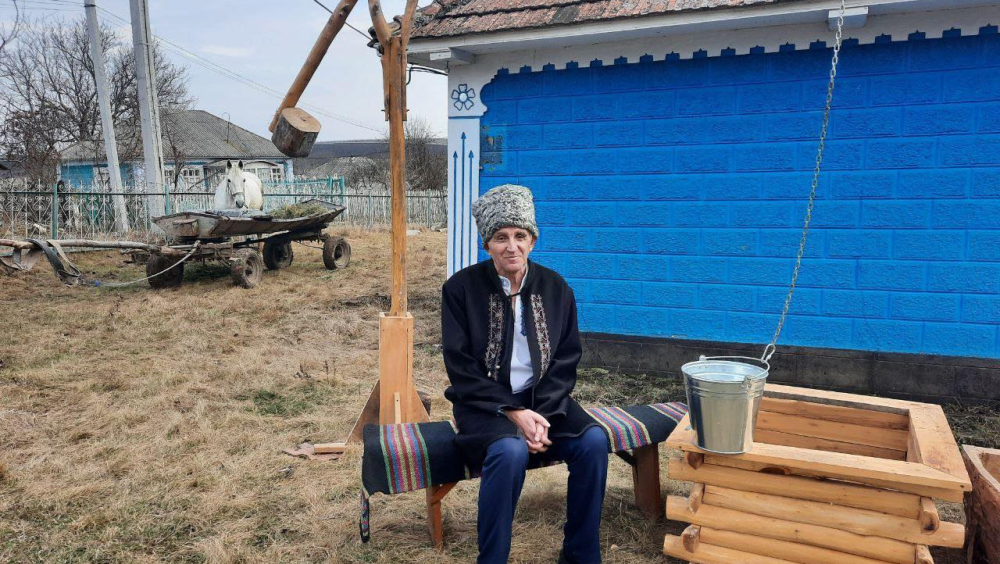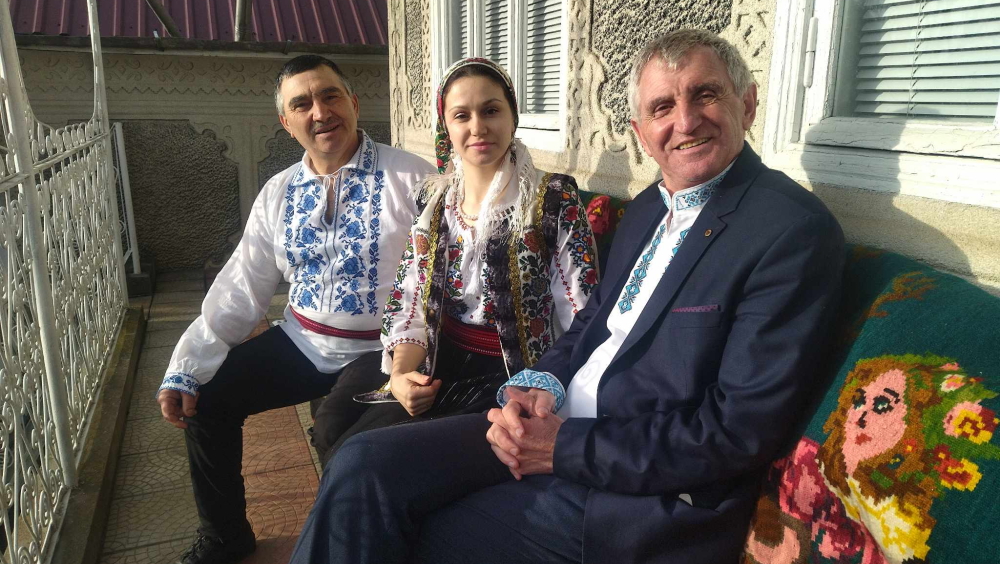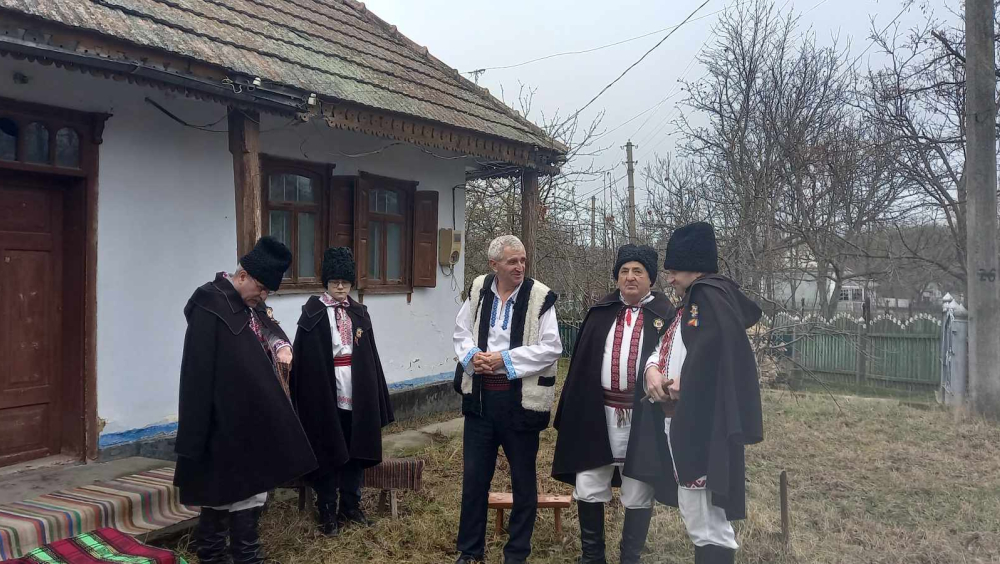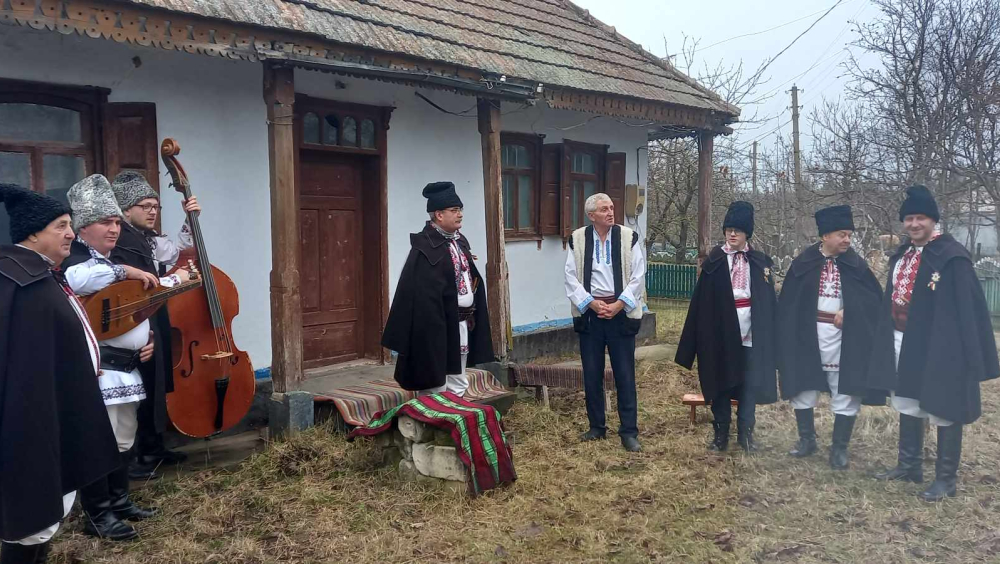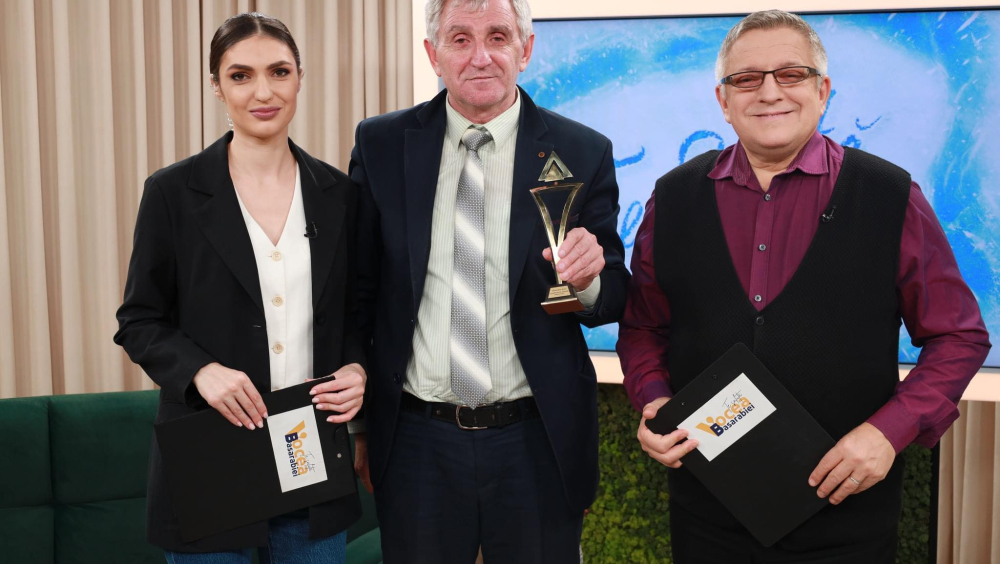GHEORGHE ŞOVA - ALONE IN SEARCH OF CULTURAL HERITAGE
Gheorghe Șova, the hero of a unique project for my country, the Republic of Moldova, travels individually, through the country, in order to identify, document and map musicians - promoters and keepers of intangible cultural heritage. Unique, because absolutely no one in my country cares about this field, thus achieving a revolution in the thematic approach, he is not a specialist in the field, but he does these things with dedication and passion.
Gheorghe Șova from the Republic of Moldova, the one and only, knew where the Musical Caravan would go, with the generic title "European Moldova", an activity that awakened and united the world.
Gheorghe Șova is becoming a personality in my country, being the only one concerned with cultural heritage, organizing folklore expeditions.
I met him from a social media post made by my head of culture. And it was what I lacked in terms of cultural and artistic expression in my work as a cultural worker.
This Man seems to have descended from another world. While the world covets material goods daily, He goes through the villages and looks for people who play ancient folk musical instruments. He knocks on the door of the householders in the villages where, someone recommended that they play the oldest old musical instruments – the leaf, the film, the fish scale, the drum, the whistle, the double whistle, the ocarina, the tilinca, the toaca, the bell, the snare, the doba, the caval , mandolin, bagpipe, bucium, cobza, buhai, small cymbal.
I followed him on social networks and admired him for what he does, being the only person in the Republic of Moldova concerned with this intangible cultural heritage, but also with the people who play these instruments. I was already envious of the locals in the villages that Gheorghe Șova passed through, because it was about him, but I still admired, insistently, what he was doing to discover the musicians who play these musical instruments. I was envious of my boss, who somehow met him, I was envious of my colleagues who met him in their villages.
I wasn't lucky enough to meet him, my village, Paladea, being quite small and you don't find people who play at least one of these instruments anymore. My village has only one grocery store, it is enough for the small population, it provides us all with basic necessities. And, so that you can imagine how the edifices are located, next to it is the children's kindergarten and the cultural home, a building for both institutions. The school used to be here. The town hall is located in another village.
Also in the center of the village is the cemetery, the eternal place of the deceased. And it was here on a Sunday, at a time and weather not so favorable for a visit or a walk through the cemetery, from the threshold of the food boutique, you noticed a man moving from one grave to another. I thought he was some colleague of my late husband, which fact gives me the right to approach him.
… I recognized him. Dressed in national clothes, he is the one seen in the posts on the networks. But it was in my village, in the cemetery, where, so to speak, there are no tourist attractions.
Gheorghe Șova broke my heart once more, because, passing through the village, he remembered a teacher's name. And, in order not to arouse the curiosity of some, he proposed to look for them in the cemetery. If he finds graves, he will pay homage to them. If he does not find the graves, it is a sign that they are alive. To explain, look for living people among the Christian crosses installed at the dirt mounds.
I invited him, of course, to accompany me to the cultural home, where we also have a small museum corner. Discussing the project to revitalize old folk musical instruments, how these promoters of cultural heritage discover, I notice how interested he is in museum objects, including a stray hat of my late husband.
I gave it to him as a gift. That's how I felt I had to proceed…
He left, I managed to take some pictures that I'm proud of. In the following days and weeks, it seems, I went through the entire village, telling my fellow citizens that Gheorghe Șova stopped by the village of Paladea. I'm proud, many women were somewhat sad that they didn't get to see him.
The climax was about to happen. Gheorghe Șova returned to my village with a whole procession of musicians, performing a show of 4 folk bands, with old popular musical instruments. Nor would we have ever imagined that a show was possible in a village of a few hundred inhabitants.
The people who left the village have been admiring the posts and distributions of this wonderful show, from the European countries of the Moldovan diaspora. And there was a connection between the departed world and the remaining ones, a connection made through these heritage objects – the old folk musical instruments.
And I am proud that the hat I gave him became a determining element for this project and a promoter of the intangible cultural treasure – the old popular musical instruments.
I am happy to learn that the size of his project is expanding, being the only element of popular culture that also expands in the Transnistrian region, an area where the researchers and folklorists from Chisinau have never crossed. He succeeded Gheorghe Șova, who also organized a gala concert of musicians from both banks of the Dniester.
If you ask me how eloquent and scalable the project would be on the European scale, I will point out a few strong points:
The defining element can be found in the title of the Project: "European Moldova" Musical Caravan. Every people, every nation, every country has its own ancient musical instruments, therefore this example can and must be an example of good practice for other countries and communities.
The initiative of Mr. Gheorghe Șova is of major importance, because this project can be replicated for every country of the European Community. As far as I understand, there are already contacts with different agencies and people from Poland, Romania, Bulgaria, Lithuania, Ukraine, Croatia, Portugal, who are interested in possible partnerships and collaborations in the perspective of implementing projects.
Every nation has its old folk musical instruments. Every nation has musicians, folk craftsmen who make old musical instruments. Some instruments are almost identical, which facilitates easier communication between the carriers of talents, heritage. Plus, the European approach would allow the organization of public events, but also research into the phenomenon of old popular musical instruments.
In this context, Gheorghe Șova has already established contacts with the Iasi County Center of Traditional Culture in Romania, with musicians from Poland, Romania, Ukraine. But the most interesting and important moment is the fact that this national treasure can be passed on to the younger generation through summer camps, courses, lessons, folklore expeditions.
